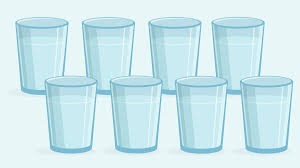The human body is made up of around 60% water, which plays a critical role in a variety of bodily functions. These include regulating body temperature, supporting digestion, and removing toxins.
Eight glasses of water per day: myth or reality?
Drinking eight glasses or two litres of water per day is one of the most prevalent pieces of health advice; however, although this is a great starting point, it won’t necessarily apply to every person.
Here are some things to keep in mind when it comes to understanding your personal water intake needs:
1. Activity level
The more physical activity you engage in, the more you will sweat and the more water you will lose. If you are physically active, you will need more water than someone who leads a more sedentary lifestyle.
When working with a personal trainer Cheltenham, such as https://insidesweat.com/pages/personal-training, you should have a personalised diet, fluids, and exercise plan in place to help you achieve your fitness goals.
2. Body size
Muscle tissue is composed of more water than fat; therefore, the more muscular you are, the more water you will need. This is something to keep in mind if you are working with a personal trainer, as you will need to up your water intake the more muscle you develop through your workouts.
3. Diet
If your diet is high in sugar, protein, or salt, you are likely to benefit from a higher water intake. This is because water plays a key role in balancing your electrolytes, regulating blood sugar, and supporting protein digestion.
How to monitor your water intake
Drinking water when you feel thirsty is a great way to keep yourself hydrated; however, thirst is not always a fool-proof indicator of hydration. There are a number of other signs of dehydration, including headaches, dizziness, and tiredness.
Keeping an eye on the colour of your urine can also help you keep on top of your hydration. Urine that is pale yellow in colour generally indicates good hydration, whereas darker urine is a sign that you need to increase your water intake.

